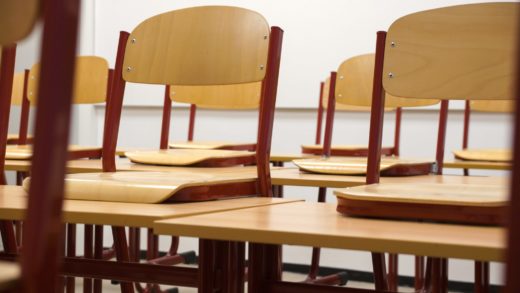The beginning of a new school year is slowly approaching and many people – especially teachers and parents – are worried about what may possibly come next. Summer parties will be replaced by opened schools with a high concentration of children in one place which could – according to some experts – lead to the coronavirus spreading faster. On the other hand, some experts believe that the newest strains of the virus are weaker and thus less dangerous than the previous ones.
A New School Year Begins
In the Czech Republic, schools traditionally open in September after two months long summer holiday, this year being no exception despite the ongoing pandemic. Given that the COVID-19 may be spreading more easily at schools than previously thought, according to the US Centers for Disease Control and Prevention (CDC), this might cause the virus to spread rapidly in autumn. Czech experts are also fully aware of this, yet it was decided the schools will open in September as usual.
In order to contain the spread of the virus at schools, the Czech government released directions for teachers and school management, but many of the teachers argue that this still won’t be enough to protect the students and the school staff. In theory, every evidently sick student should be sent home from school immediately, but infected students might not be spotted before infecting others as some students may be completely asymptomatic. Seasonal diseases could possibly also complicate things.
Originally, the Czech government intended for the students and the school staff to wear face masks but cancelled this plan after a backlash from some people who deemed this as unnecessary. This also resulted in the chief epidemiologist Rastislav Maďar – who supposedly came up with the idea – resigning from the Health Minister’s advisory body.

Is the Virus Getting Weaker?
On the other hand, there are also experts who believe that the coronavirus has mutated and became less dangerous than it was originally. For example, the Czech epidemiologist Roman Prymula points out that the virus is spreading faster but is also becoming weaker and the clinical course is milder than in the previous months. Yet he claims that people should be more careful in autumn and winter – mostly because of the concurrence of the flu and the coronavirus. This might be, however, problematic, because as the number of serious cases decreased, people stopped being afraid of the virus. This is one of the reasons why Prymula doesn’t underestimate the epidemic – he warns that up to 10 percent of the Czech population may end up quarantined in autumn.
Another expert who shares this opinion is a biochemist Jan Konvalinka who believes that the COVID-19 will get gradually weaker in time. At the same time, he claims there is still a possibility of the virus mutating and becoming more dangerous which could cause a second wave of the coronavirus similar to the one of the Spanish flu.
What Could Happen Next?
While it won’t be compulsory to wear face masks at schools and most other indoor areas, wearing them will be mandatory on public transport. It is, of course, generally advised that people do their best to protect themselves and others from infecting the disease. This means that anyone who feels sick, should stay at home and – if the person experiences symptoms similar to those of the COVID-19 – get tested for the coronavirus as soon as possible. Good hygiene is also crucial!
Let us know and get your residence permit as soon as possible to be safe in the future in case the pandemic indeed returns in full force. Having a residence permit is the best way of making sure you’ll be able to return to the Czech Republic even if the borders are closed again.
If you don’t want to miss out on any important news, subscribe to our newsletter mapping the current coronavirus situation, and don’t forget to check this blog.
Sources of the information: České noviny, Magazín Plus+ article I and article II, Novinky.cz article I, article II and article III, Echo24
Source of the image: Pexels.com
